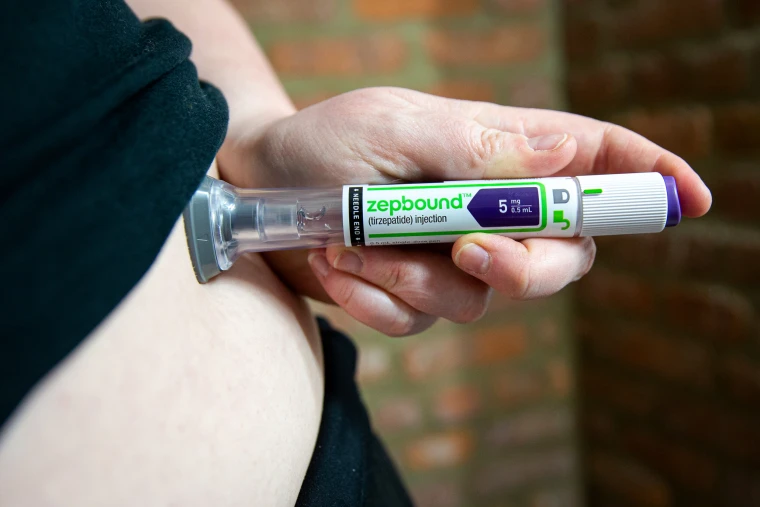What Health Insurance Covers Zepbound?
A Complete Guide to Savings and Coverage
Zepbound, an innovative weight-loss medication, has transformed the lives of countless individuals battling obesity. However, its high cost presents a significant barrier, prompting many to explore whether health insurance can help cover this life-changing drug. In this guide, we’ll walk you through everything you need to know about insurance coverage for Zepbound, from identifying eligible plans to maximizing cost-saving opportunities.
What Makes Zepbound Unique?
Zepbound isn’t just another weight-loss solution—it’s a medical breakthrough. The drug works by imitating natural gut hormones, such as GLP-1 and GIP, that regulate appetite and blood sugar levels. This dual-action mechanism helps users not only lose weight but also maintain it. Coupled with a healthy diet and lifestyle changes, Zepbound has demonstrated remarkable results, such as:
- Significant Weight Loss: Users often report losing up to 25% of their total body weight within a year.
- Improved Metabolic Health: Enhanced blood sugar regulation reduces the risk of type 2 diabetes.
- Better Quality of Life: Weight loss benefits extend to increased energy levels, reduced joint pain, and improved mental health.
Despite its benefits, the cost of Zepbound—often exceeding $1,000 per month—can be a significant hurdle without insurance.
Why Health Insurance Coverage Is Critical for Zepbound
Weight-loss medications like Zepbound are categorized as “lifestyle drugs” by many insurers. As a result, coverage isn’t always guaranteed. Here’s why securing insurance coverage is essential:
- Cost Savings: Insurance can reduce the monthly expense significantly, making it more affordable for long-term use.
- Accessible Treatment: Easier access to medications fosters adherence to weight-loss programs, improving health outcomes.
- Preventive Benefits: Successful weight management reduces the risk of costly obesity-related conditions, including heart disease and diabetes.
Which Health Insurance Plans Cover Zepbound?
Let’s delve deeper into the types of health insurance that may help cover Zepbound:
- Employer-Sponsored Insurance:
- Coverage for Zepbound under employer plans varies but is becoming increasingly common as weight-loss solutions gain medical recognition.
- Policies often require prior authorization, which involves proving medical necessity, such as having a BMI over 30 or obesity-related health conditions.
- Medicare:
- Medicare generally excludes weight-loss medications like Zepbound under Part D (prescription drug plans). However, some Medicare Advantage (Part C) plans might offer limited coverage.
- Check with your plan administrator or explore Part C options for supplemental drug benefits.
- Medicaid:
- Medicaid coverage for Zepbound depends on state policies. States like New York and California are more likely to include obesity medications in their formularies.
- Approval usually requires prior authorization and documentation of failed attempts with other weight-loss methods.
- TRICARE and Veterans Affairs (VA):
- TRICARE may cover Zepbound if it’s prescribed as part of a comprehensive weight management program.
- The VA also offers coverage through initiatives like MOVE!, which focuses on treating veterans with obesity.
- Individual and Marketplace Plans:
- Affordable Care Act (ACA) marketplace plans might include Zepbound, but it varies by insurer and state. Comprehensive plans are more likely to offer coverage.

How to Confirm Your Zepbound Coverage
Follow these actionable steps to determine if your health insurance covers Zepbound:
- Check the Formulary:
- Review your insurance plan’s list of covered medications, also known as a formulary. Search for Zepbound and note its tier level, which determines your copay or coinsurance.
- Call Your Insurance Provider:
- Contact the customer service number on your insurance card. Ask specific questions such as:
- Is Zepbound covered?
- What is the copay or coinsurance amount?
- Are there any requirements for prior authorization?
- Contact the customer service number on your insurance card. Ask specific questions such as:
- Request Prior Authorization:
- Your doctor can submit a prior authorization request, including your medical history and reasons why Zepbound is necessary for your treatment plan.
- Explore Flexible Spending Accounts (FSA) or Health Savings Accounts (HSA):
- If Zepbound isn’t covered, FSAs and HSAs can help you use pre-tax dollars to cover the cost.
Maximizing Savings on Zepbound
Even with insurance, the cost of Zepbound may still be challenging. Here are tips to reduce your out-of-pocket expenses:
- Manufacturer Savings Programs:
- Zepbound’s manufacturer often provides savings cards that can reduce your copay to as little as $25 per month for eligible patients.
- Pharmacy Discount Cards:
- Services like GoodRx or SingleCare may offer discounts for Zepbound, even if it’s not covered by your insurance.
- Appeal Coverage Denials:
- If your insurance denies coverage, don’t give up. File an appeal with supporting documentation from your doctor.
- Switch Plans During Open Enrollment:
- If your current plan doesn’t cover Zepbound, use the open enrollment period to switch to a plan that does.
- Participate in Weight Management Programs:
- Some insurers offer discounts or coverage extensions for individuals enrolled in lifestyle intervention programs.
The Role of Weight Management in Long-Term Health
Zepbound is more than just a medication—it’s a catalyst for life-changing transformations. Beyond shedding pounds, users can experience:
- Lower Blood Pressure: Reduced weight alleviates strain on the cardiovascular system.
- Improved Mobility: Weight loss eases joint pain and increases physical activity.
- Enhanced Mental Health: Confidence and well-being improve with a healthier body.
Frequently Asked Questions About Zepbound Coverage
1. Does every insurance company cover Zepbound?
No. Coverage varies widely based on the insurer, policy type, and medical necessity.
2. Can I get Zepbound through Medicare?
Zepbound is generally not covered under traditional Medicare, but some Medicare Advantage plans may provide coverage.
3. What if my insurance doesn’t cover Zepbound?
Consider using manufacturer savings cards, pharmacy discounts, or FSAs/HSAs to lower costs. You can also file an appeal or switch insurance plans.
4. Are there alternatives to Zepbound?
Other FDA-approved weight-loss medications, such as Wegovy or Ozempic, might be covered and offer similar benefits. Consult your doctor for options.
Conclusion
Zepbound has the potential to transform lives, but understanding your insurance coverage is crucial for making it financially accessible. By reviewing your plan, consulting your doctor, and leveraging cost-saving opportunities, you can make Zepbound work within your budget. Remember, your health is an investment worth making.
Search Keywords: Health insurance coverage for Zepbound, What insurance plans cover Zepbound, Affordable weight-loss medications, Zepbound savings cards, Medicare and Zepbound benefits, Medicaid coverage for Zepbound, TRICARE weight-loss drug options, Filing insurance appeals for Zepbound, How to lower Zepbound costs, Best insurance for weight-loss medications.




